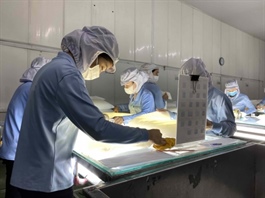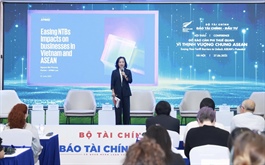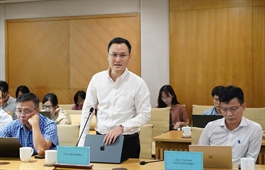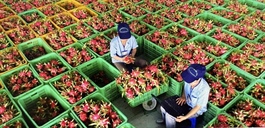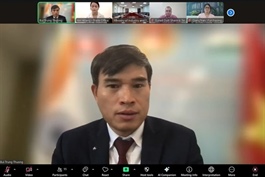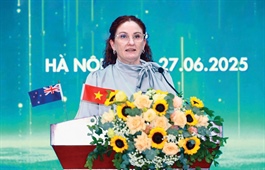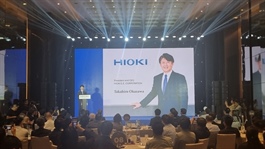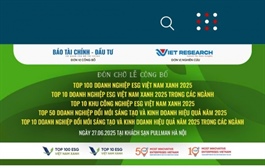Soothing non-tariff barriers to improve regional trade
Soothing non-tariff barriers to improve regional trade
Businesses today face growing challenges, geopolitical uncertainty, new tariffs, rising competition, and associated impacts on consumer confidence. While we cannot always control these global headwinds, we can make better use of the frameworks already in place, our free trade agreements, consultation mechanisms, trade norms, and international regulations, and we must continue to improve what remains within our reach.
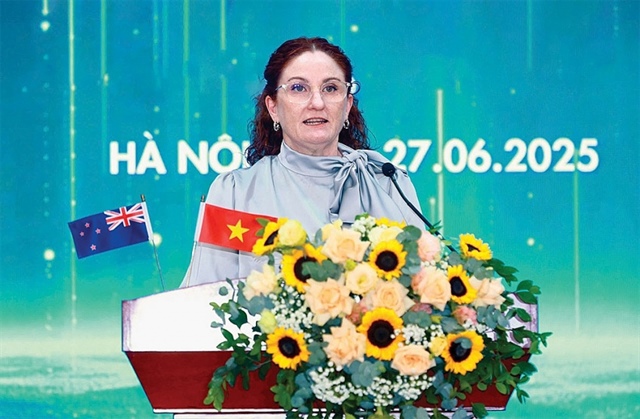
Caroline Beresford, New Zealand Ambassador to Vietnam |
Easing non-tariff barriers (NTBs) should be at the heart of these efforts. NTBs are frequently addressed in trade negotiations, discussed in regional forums, and embedded in international agreements.
In practice, more than 2.5 million non-tariff measures are in effect, affecting over 78 per cent of world trade, with compliance costs estimated at NZ$2.4 trillion ($1.45 trillion) in 2019. Although updated figures are not yet available, New Zealand businesses are reporting an increase in both the number and impact of measures they face. We fully recognise that many of these, such as biosecurity regulations that protect human, animal, and plant health, are necessary and can enhance trade.
However, when such measures are implemented in ways that unnecessarily restrict commerce, they become NTBs, hindering the free flow of goods and services, delaying exporters, and undermining our collective goal of deeper regional integration.
Governments across the region, including Vietnam and New Zealand, have made meaningful progress in reducing NTBs. But there is more to be done, and this requires collective effort.
The voice of business is crucial. Sharing practical experiences helps identify where policy gaps exist. The media plays a key role in raising awareness and shaping constructive narratives. And as government officials and policymakers, we must listen carefully and translate what we hear into effective, transparent, and appropriate regulations that support enterprise and remain in line with our international commitments.
New Zealand, like Vietnam and other ASEAN partners, takes a proactive and solutions-focused approach to addressing non-tariff barriers. We engage closely with businesses to understand their challenges and advocate on their behalf in international forums. Our ‘no wrong door’ policy ensures that exporters can contact any trade-related ministry and receive a response within 48 hours.
All NTBs raised are logged in a national database and tracked. Currently, we are monitoring nearly 200 cases, with several prioritised for resolution. We address these issues through multiple channels, including the World Trade Organization, bilateral engagements, free trade committees, and through innovative, partner-led approaches.
At the heart of this work is our belief that a dynamic and thriving private sector, both international and domestic, is central to sustainable development. Good regulation is trade enhancing for economies, and reducing NTBs also helps to promote regional integration and trade. We are committed to supporting an enabling, transparent, and predictable business environment in this region, with full recognition that your prosperity is ours as well.
That is why we were honoured to partner with Vietnam Investment Review in convening a conference on easing non-tariff barriers to unlock ASEAN’s potential. Our shared goal is to provide a platform for exporters and business leaders to share their firsthand experiences with NTBs; explore actionable policy options for improving trade flows and shaping future negotiations; and support Southeast Asian governments in enhancing long-term market competitiveness.
We fully understand that there is no magic wand that a single conference can wave to resolve such complex issues. But we hope this event will spark deeper dialogue and contribute to practical, forward-looking solutions.
Let this not be a one-off conversation, but the start of a sustained effort to make our region’s trade environment more efficient, more transparent, and more inclusive.
- 08:00 30/06/2025








